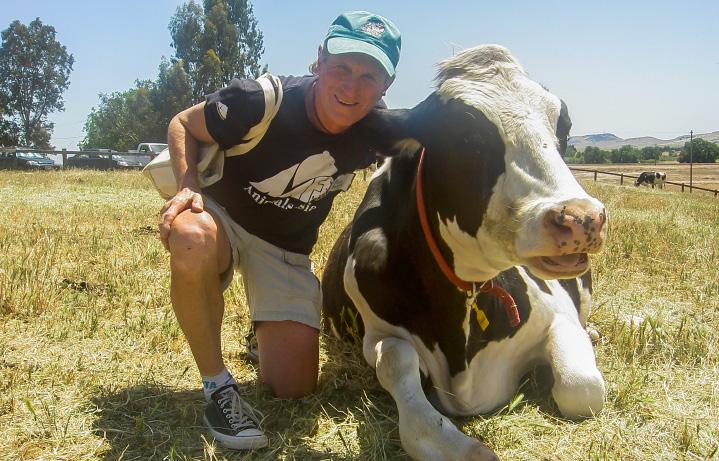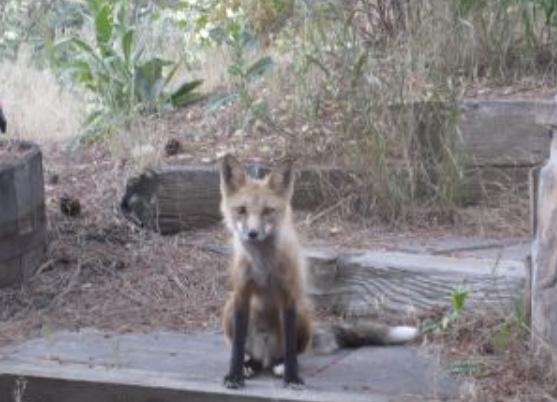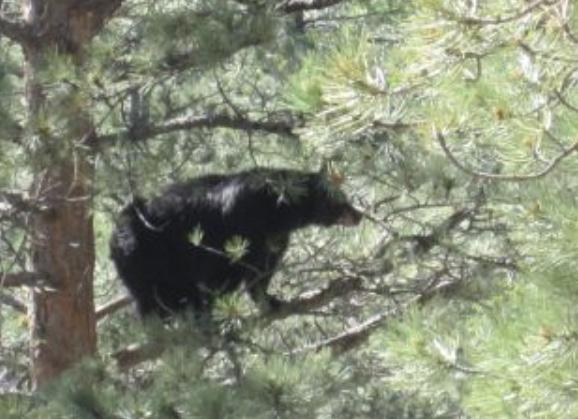
5 minute read
THE WRITINGS OF MARC BEKOFF
Marc Bekoff, Ph.D., is professor emeritus of Ecology and Evolutionary Biology at the University of Colorado, Boulder, and co-founder with Jane Goodall of Ethologists for the Ethical Treatment of Animals. He has won many awards for his scientific research including the Exemplar Award from the Animal Behavior Society and a Guggenheim Fellowship. In 2005 Marc was presented with The Bank One Faculty Community Service Award for the work he has done with children, senior citizens, and prisoners and in 2009 he was presented with the St. Francis of Assisi Award by the New Zealand SPCA. Marc has published more than 1000 essays (popular, scientific, and book chapters), 31 books, and has edited three encyclopedias.
Animal Well-Being: Simple, User-Friendly Vocabulary
Advertisement
Many words used to refer to nonhuman animals influence perception and attitudes. Used by kind permission of Marc Bekoff | psychologytoday.com/us/blog/animal-emotions
Last week, a well-known writer (Paul) sent me the following email:
Dear Dr. Bekoff: I read your essays about our attitudes toward animals and while I do not always agree with your views, I decided that my New Year’s resolution would be from now on to refer to animals as if they are humans, using the proper pronouns and other words to make it clear that I have changed my ways and attitudes. Might you have the time to pen a lexicon of words that you think are appropriate?
Paul’s email came at the right time because I had been thinking about how the words we use to refer to nonhuman animals (animals) influence how we view them, our attitudes toward them, and how we treat them, and also can feed into speciesist proclivities such as some animals don’t suffer as much as others or aren’t as intelligent. There aren’t degrees of sentience, and intelligence doesn’t really factor into suffering. And of course nonhumans are valuable in and of themselves because they are alive and have inherent or intrinsic value, not because they’re similar to us.
Some words also are used to psychologically distance ourselves from other animals and help to reduce the cognitive dissonance some people feel when their words and actions don’t align with their feelings.
A Cheat Sheet of Words We Should Use When Referring to Nonhuman Animals
• Animals should be referred to as who or whom rather than it, that, or which. Animals aren’t objects, although globally they are written off as being property in legal systems. When I talk about the food people choose to eat, I point out that very often it’s a matter of who’s for dinner, not what’s for dinner, because the animals who wind up on our dinner plates were once alive and sentient.
• Labeling animals as pests or trash says more about us than about them. These words are conveniently used because it allows us to get rid of them however, wherever, and whenever we choose.
• When we choose to take an animal’s life other than when they are in interminable pain or suffering from an untreatable condition, we shouldn’t try to sanitize what we’re doing by using the words euthanized or euthanasia, which refer to mercy-killing. Laboratory and other researchers often use the word sacrifice to refer to killing an experimental animal, and those who kill wild animals often use words including euthanizing—which they are not doing—along with culling, harvesting, dispatching, disposing, eliminating, or removing to refer to what they are doing. When wolves were being killed in Washington State a few years ago, the phrase authorized removal was used to detract attention or to soften the blow of what was actually being done to the wolves. Legal systems do not allow the word murder to be used for nonhumans, but this is a speciesist move because when people are getting rid of healthy animals they are, in fact, murdering them. People who use words inappropriately should be called out. When a bear comes down to my hometown of Boulder and is killed, as was a treed mother who was with her two cubs, they are not euthanized as headlines and the shooters claim. When numerous geese are gassed to death, they are slaughtered, some would say murdered, not euthanized. However, in the recent case of the celebrity mountain lion called P-22 who lived around Los Angeles, he unfortunately had to be euthanized because his suffering from severe injuries was so great it would have been inhumane to keep him alive in captivity or place him back into his home environs.


• When zoos kill otherwise healthy animals who don’t fit into their breeding programs or for whom there no longer is room, they dismissively call them “surplus” animals, and zoos claim they are euthanizing these disposable individuals. They are not; they are zoothanizing them because these individuals aren’t moribund or in interminable pain. In 2014, it was estimated that European zoos killed somewhere between 3,000 and 5,000 in any given year. They admit they don’t keep accurate records and don’t like to publicize what they’re actually doing. They sanitize it by calling it “management euthanasia,” which deflects attention from what they are actually doing.
• Some people call themselves mutualists but still hunt and fish. Simply defined, a mutualistic relationship means that both or all participants benefit from the interactions in which they partake. There isn’t anything mutualistic in hunter–hunted encounters, although it sounds good and softens what is actually happening.
• Coexistence means living together in harmony. It can mean simply coexisting in space and time with little to no interaction or cohabiting in a friendly manner when paths cross. Coexistence doesn’t mean it’s OK to kill another being, although that is just what some organizations such as Wildlife Services in the United States does, they claim, “in the name of coexistence.” Killing in the name of coexistence is an oxymoron and makes no sense at all. A wonderful example of coexistence occurring right now involves a family in Connecticut who discovered a hibernating black bear under their deck and is letting it stay there.
• Animals should be named rather than numbered. Naming an individual suggests there’s a close relationship and should help to stop killing them when they are not in interminable pain or suffering from an incurable disease. Why is it OK to name our companion animals and animals in zoos and aquaria but not others such as lab animals and animals who are on their way to becoming food? Naming an animal recognizes them as the individual they are. An unnamed cow or other numbered animals aren’t less sentient, nor do they suffer less than a named individual.
Rewilding Language and Changing Our Mindset
I’m glad Paul wrote to me. It’s not asking too much of people who choose to kill animals to be upfront about what they’re doing. Language, thought, and action are well connected, and a change in language could, and should, change how we interact with other animals, especially when killing is an option for dealing with a particular “problem animal,” some of whom are simply hanging out because we stole their home. My own very close unplanned encounters with cougars, black bears, and red foxes have taught me valuable lessons about the importance of coexistence.
The solution to mislabeling what we do to animals and how we refer to them is to “rewild” language in scientific literature, mass media, and everyday conversations.1 When people use a misnomer, gently correct them and explain why you are doing so. This can lead to fruitful discussions about animal–human relationships. Nothing is lost by doing so, and a lot can be gained that can help other animals and ourselves coexist harmoniously.
References
1) Soon after I posted this piece I saw John McWhorter’s essay “The Secret Lives of Words” in which he writes, “The fit between words and meanings is much fuzzier and unstable than we are led to suppose by the static majesty of the dictionary and its tidy definitions. What a word means today is a Polaroid snapshot of its lexical life, long-lived and frequently under transformation.”
Seeing Species: A New Book Looks at Animals in Media.
Calling Animals “Pests” Is More About Us Than Them.
“Zoothanasia” Is Not Euthanasia: Words Matter.










